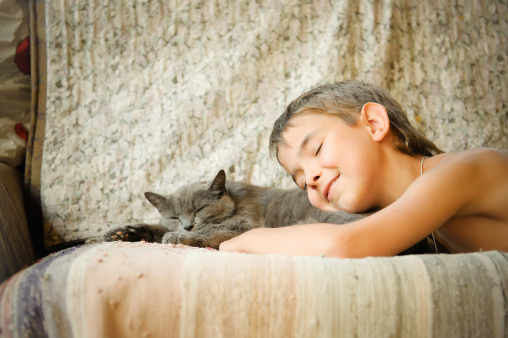Research by Travel Supermarket found that 47% of Brits miss their pet more than family when they’re on holiday, with over a third of those polled choosing to take their furry friend away with them. Pet ‘owners’ (let’s face it, they own us as much as we own them!) know just how much joy, love and companionship our furry sidekicks can bring into our lives. National Pet Month, running from 1st April to 6th May, is a celebration of this companionship, but its aims also include raising awareness of responsible pet ownership.
Getting a family pet is a big decision and not one to be taken lightly. Alongside the financial costs, there is also the huge responsibility of caring for an animal, such as taking them for walks, feeding them regularly, making sure they have clean water and fresh bedding, and a warm, safe place to sleep. Alongside looking after kids, this can sometimes feel like a bit of a chore for time-stretched parents! So, before committing, it’s a good idea to borrow a book about your chosen pet from a library and finding out about their needs, then drawing up a rota of care and discussing who will take on each responsibility when the pet moves in. Be realistic about your child’s capabilities, even if they’re promising they will take the dog for two long walks a day. If you feel that you will end up taking on the lion’s share of the work because of your child’s age or available time, opt for a pet that needs less daily care.
1. According to research, children who grow up in homes with pets are less likely to develop childhood allergies and asthma, and have stronger immunity.
2. Having a dog makes going for a walk an exciting opportunity for play, whatever the weather.
3. Animals can provide a non-judgemental ‘listening ear’ when it feels like parents or other adults won’t understand.
4. Those who are aware of energy fields or ‘auras’ recognise that children and animals are often very open to one another, communicating non-verbally through touch and closeness.
5. Cuddling and nurturing an animal is deeply healing, comforting and relaxing.
6. Children with learning disabilities often respond to animals where they are unable to connect with humans.
7. Pets offer unconditional love: they do not judge or scold, but instead offer comfort and companionship, whatever mood a child is in.
8. Children with pets actually show higher levels of impulse control, self-esteem and social skills.
9. Caring for an animal helps a child develop empathy and responsibility.
10. The death of a pet, though often traumatic, helps a child understand the concept of dying and death. It opens up discussion and enables learning and emotional growth opportunities which can prove to be very useful when a family member passes away.







